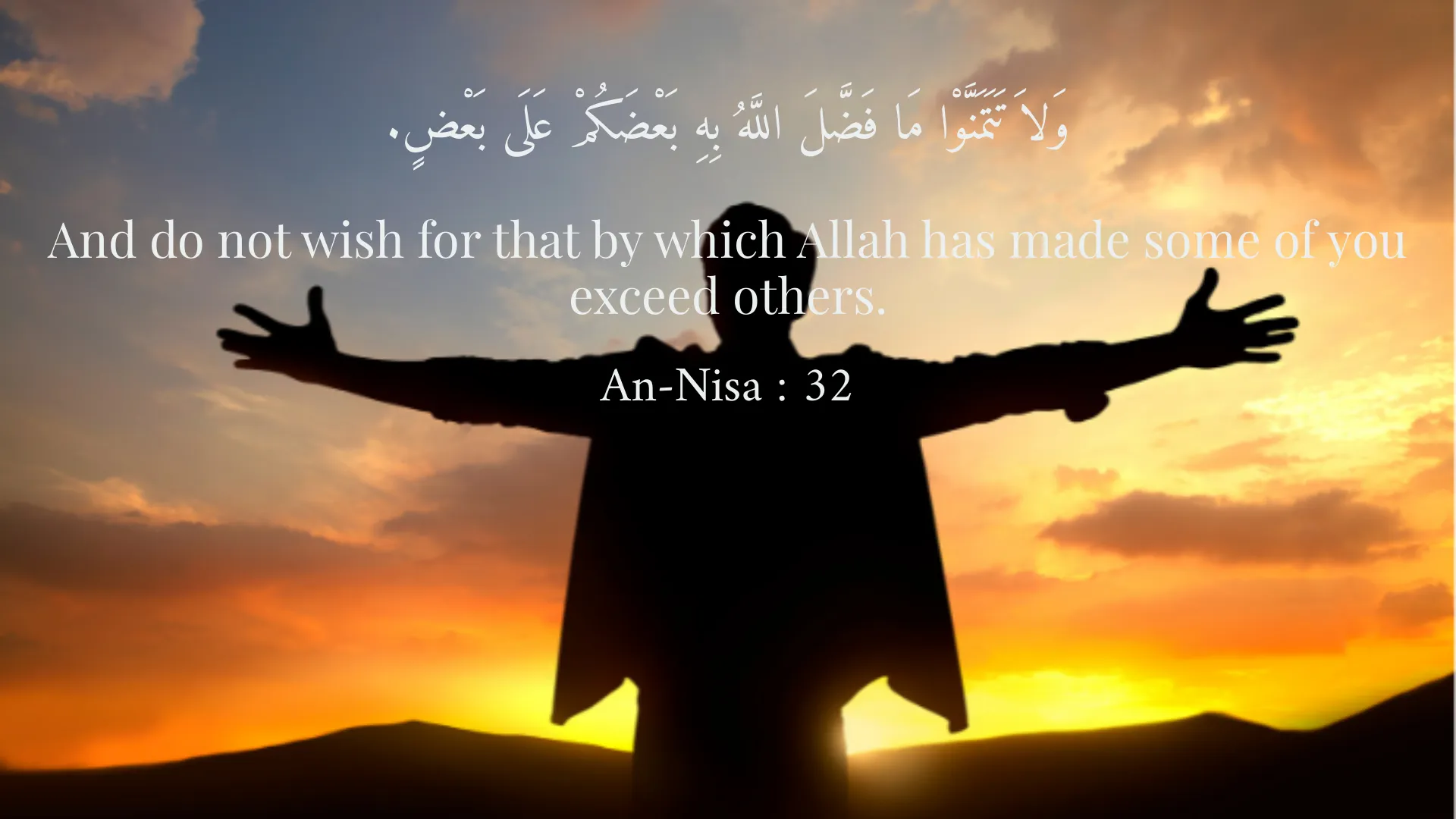Quranic Answer

In the Holy Quran, respect for women is emphasized as one of the fundamental principles of human life. Throughout its verses, the Quran provides a comprehensive framework for understanding the rights of women and the ethical treatment that they should receive from men and society as a whole. The reverence for women is not just a cultural norm in Islamic teachings but is enshrined in divine scripture, making it a mandatory principle for all believers. The teachings of the Quran highlight the necessity of recognizing women's contributions to society, their roles as mothers, wives, and daughters, and the inherent dignity they possess as human beings. One of the most pivotal chapters that delve into women's rights is Surah An-Nisa (The Women). This chapter addresses various aspects of women's rights, their roles in the family, and their entitlements in society. Among the key verses found in this chapter is Verse 32, where Allah explicitly mentions the differences in wages and rights between men and women. He advises believers, "And do not wish for that by which Allah has made some of you exceed others." This verse serves as a powerful reminder that envy and resentment should not overshadow one’s appreciation for the roles and rights of others. Rather, it advocates for equity and justice, reinforcing that both men and women possess their own unique strengths and weaknesses that contribute to the well-being of society. The Quran places significant emphasis on the equality of men and women in various spheres, including business and personal rights. By directly addressing the disparities in rights and privileges, the Quran encourages believers to foster an environment of mutual respect and understanding between genders. This promotes a partnership model where both men and women can coexist harmoniously, supporting one another in their pursuits. In addition to establishing equity in rights, the Quran also provides guidance on the behaviors that men should embody in their interactions with women. Surah An-Nur (The Light), Verse 30, commands men to lower their gazes from inappropriate looks, and encourages them to maintain their chastity. This directive not only serves as a tool for personal moral development but also emphasizes the importance of safeguarding the dignity of women. By urging men to exhibit restraint and respect, this verse underlines that the treatment of women is directly linked to morality and ethical conduct. Furthermore, mutual affection and respect within marital relationships are heavily emphasized in Surah At-Tahrim (The Prohibition), Verse 19. This verse underscores the necessity of honoring one’s spouse, indicating that mutual respect is crucial for maintaining familial harmony. The Quran advocates for a nurturing environment in which both partners are appreciated and valued, thereby bolstering the overall dynamic of the family unit. The treatment of women in Islam extends beyond mere rhetoric. The implications of these Quranic verses can be seen in various aspects of Muslim life. The recognition of women's contributions to society is crucial, as Islam acknowledges women not only as homemakers but also as active participants in the workforce, education, and leadership positions. The Quran underscores their importance by providing them with rights in inheritance, education, and economic independence. Moreover, the issue of domestic violence and mistreatment is addressed through the Quran’s emphasis on respect and kind treatment. The principles embedded in the Quran challenge harmful cultural practices that may misinterpret or misuse religious teachings. The emphasis on kindness and compassion serves as a cornerstone for the treatment of women within the Islamic framework, advocating for an environment where women can thrive both spiritually and socially. In contemporary times, the messages of the Quran continue to resonate, as issues surrounding women's rights are at the forefront of social discourse. Many Muslim women are advocating for their rights, drawing upon the Quranic teachings that emphasize their dignity, respect, and agency. The interpretation of the Quran in light of modern issues has prompted scholars to re-evaluate traditional norms and practices, aiming to align them more closely with the Quranic vision of justice and equality. It is crucial for both men and women in Muslim communities to engage in discussions regarding these verses and their application in current societal contexts. Education plays a key role in this regard, as understanding and awareness of women's rights in Islam can empower both genders. Initiatives that focus on educating men about respecting women's rights and valuing their contributions can lead to transformative changes in communities. In conclusion, the Quran consistently stresses the necessity of respecting and upholding women's rights, advocates for their dignified treatment, and promotes gender equality within its verses. The teachings found within Surah An-Nisa, Surah An-Nur, and Surah At-Tahrim serve as fundamental guidelines for how believers should engage with and treat women. As we continue to navigate the complexities of modern society, the principles laid out in the Quran remain vital in fostering respect and equality for all individuals, regardless of gender. The teachings of the Quran concerning women challenge preconceived notions and reinforce the idea that women deserve equal dignity and respect in all aspects of life.
Related Verses
وَلاَ تَتَمَنَّوْا مَا فَضَّلَ اللَّهُ بِهِ بَعْضَكُمْ عَلَى بَعْضٍ.
And do not wish for that by which Allah has made some of you exceed others.
An-Nisa : 32
قُلْ لِلْمُؤْمِنِينَ يَغُضُّوا مِنْ أَبْصَارِهِمْ وَيَحْفَظُوا فُرُوجَهُمْ.
Tell the believing men to lower their gazes and guard their private parts.
An-Nur : 30
يَا أَيُّهَا الَّذِينَ آمَنُوا أَوْفُوا بِالْعُقُودِ.
O you who have believed, fulfill [all] contracts.
At-Tahrim : 19
Short Story
One day in the market, a man was shopping when he suddenly saw a woman struggling to carry a heavy load by herself. He decided to help her and approached her. The woman smiled and said, 'I can't carry this load alone.' The man respectfully replied, 'Helping others carry their burdens is a sign of chivalry and honesty.' From that day on, the man always tried to respect and assist women and those in need.